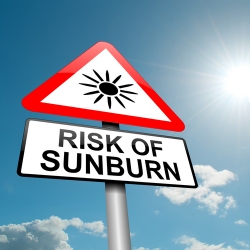
With July being UV Safety Month and the summer months upon us, sun exposure and the risk of skin cancer, particularly among Hispanics, is a growing concern. New research shows that in the past two decades alone, the incidence of melanoma – the deadliest form of skin cancer – among Hispanics has risen almost 20 percent. The rapid increase can be attributed in part to the misconception that if you have darker skin, you are not susceptible to skin cancer.
A 2013 study by The Cancer Institute of New Jersey found that there is a lack of skin cancer education in the Hispanic community. This fact is reinforced by results from a recent survey, which found that one in three Hispanics reported getting a sunburn over the course of a year, and over 43 percent of survey respondents reported rarely or never using sunscreen. Dr. Patricia Thompson, a cancer specialist at Cancer Treatment Centers of America, shared important educational background on skin cancer prevention. Dr. Thompson recommends four skin cancer prevention rules to follow, especially during the summer months.

1. No exceptions for people of color: Having melanin in the skin protects you from a certain amount of sun exposure, but that protection is not absolute. It’s important for every individual to apply sunscreen to avoid burns which could one day lead to skin cancer.
2. Apply often: It is important to apply sunscreen before leaving the house and going outside, waiting at least 15 minutes for it to sink in and form a protective layer over the skin. Apply often in order to protect the skin throughout the entire course of the day.
3. The perfect SPF: The rule of thumb is to use at least 15 SPF. For optimal protection, Dr. Thompson recommends SPF 50, which shields from 98 percent of harmful UV rays.
4. Stay younger, longer: Sun exposure that the body absorbs in your teens, 20s or 30s can present itself as cancer later in life. This is why it is critical to take care of the body’s skin early and often – no exceptions.












